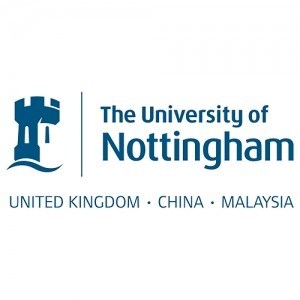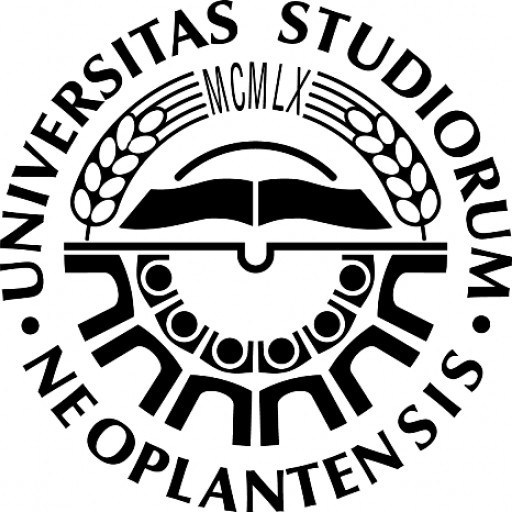Photos of university
Engineering Surveying and Geodesy at The University of Nottingham Ningbo China is a comprehensive undergraduate degree programme designed to equip students with the fundamental and advanced knowledge required for a career in surveying, mapping, and spatial data analysis. This programme combines principles from engineering, mathematics, earth sciences, and information technology to prepare students for the dynamic field of geospatial industry. Throughout the course, students will gain a solid understanding of the science of measurement, positioning, and data interpretation essential for infrastructure development, environmental monitoring, urban planning, and resource management.
The programme's curriculum covers key topics such as land surveying, photogrammetry, remote sensing, GIS (Geographic Information Systems), GPS positioning technology, and geodesy. Students are trained in the use of state-of-the-art equipment and software tools to perform accurate measurements and create detailed spatial databases. Emphasis is placed on practical skills through laboratory work, field exercises, and project-based learning, enabling students to apply theoretical knowledge to real-world problems. The programme also addresses contemporary issues such as sustainable development and environmental impact assessment, ensuring graduates are well-prepared for the challenges faced by modern engineering and surveying industries.
In addition to technical expertise, students develop skills in critical thinking, communication, project management, and teamwork which are vital in multidisciplinary projects. The course encourages innovation and research, with opportunities for students to participate in internships, fieldwork, and international collaborations. Graduates of Engineering Surveying and Geodesy at NBNUC are prepared for careers in construction, urban planning, environmental consultancy, oil and gas, and government agencies, among others. They may also pursue further postgraduate study or professional certification to advance their careers.
The programme’s teaching staff are highly experienced and actively involved in research and industry projects, ensuring that the curriculum remains aligned with current technological advancements and industry standards. Graduates will earn a Bachelor of Science (BSc) degree, opening doors to a broad range of employment opportunities and contributing to the development of sustainable and resilient infrastructure worldwide.
The Engineering Surveying and Geodesy Bachelor's Degree Program at The University of Nottingham Ningbo China is designed to equip students with the comprehensive knowledge and technical skills required for careers in the fields of surveying, geospatial data analysis, and spatial information management. This rigorous program combines fundamental engineering principles with advanced surveying techniques, positioning students to meet the evolving demands of infrastructure development, urban planning, environmental monitoring, and Geographic Information Systems (GIS). Throughout the course, students gain a solid understanding of Earth measurement systems, mapping, remote sensing, and the use of modern surveying instrumentation, including total stations, GPS/GNSS, laser scanning, and drone technology.
The curriculum emphasizes practical experience through laboratory work, field surveys, and project-based learning, enabling students to develop proficiency in data collection, processing, and interpretation. Moreover, students are introduced to the latest software tools used in geodesy and engineering surveys, preparing them for technical roles in various industries such as construction, transportation, environmental management, and natural resource exploration. The program also covers important topics in cartography, spatial data management, and the legal and ethical considerations associated with land surveying.
In addition to technical training, students will enhance their problem-solving abilities, communication skills, and teamwork through collaborative projects and professional internships. The program aims to foster critical thinking and innovation, preparing graduates to adapt to technological advancements and industry standards globally. Upon completion of this degree, students will be well-positioned to pursue careers as surveyors, geospatial analysts, GIS specialists, or continue further studies in related postgraduate programs. The University of Nottingham Ningbo China is committed to providing a supportive academic environment, state-of-the-art facilities, and opportunities for international exchange, ensuring students receive a comprehensive education that combines theoretical knowledge with practical application.
The Bachelor of Engineering in Engineering Surveying and Geodesy at The University of Nottingham Ningbo China requires prospective students to meet specific academic and language prerequisites. Applicants must have completed secondary education with strong performance in mathematics and science subjects, demonstrating the aptitude necessary for rigorous engineering training. For international students, proof of English proficiency through tests such as IELTS (typically a minimum score of 6.0 with no component below 5.5) or TOEFL is required, ensuring they can effectively engage with the academic curriculum delivered in English. In addition to academic standards, applicants are expected to submit a personal statement outlining their interest in the field of surveying and geodesy, as well as their career aspirations in related industries such as construction, infrastructure development, or environmental management. Some applicants may also be required to attend an interview or provide references that attest to their motivation and suitability for the program.
The university values applicants who demonstrate practical skills and relevant experience, such as participation in related extracurricular activities, internships, or projects. The program itself emphasizes a combination of theoretical knowledge and practical skills, including training in modern surveying technologies, geographic information systems (GIS), remote sensing, and spatial data analysis. To graduate, students are required to complete a series of core courses in subjects such as surveying principles, geodesy, photogrammetry, cartography, and data management, alongside engineering principles, mathematics, and computer science modules. The curriculum also includes laboratory work, field exercises, and project-based assessments to develop hands-on experience. Moreover, students must undertake a final year project, which involves applying their acquired skills to solve real-world problems in surveying or geospatial analysis.
The program duration is typically four years for international students, aligned with the standards of the university’s engineering undergraduate courses. Successful completion of the program confers a Bachelor of Engineering degree, which qualifies graduates for careers in surveying firms, government agencies, environmental consulting, and infrastructure development projects. Graduates may also pursue postgraduate studies in geospatial or civil engineering disciplines. The university provides comprehensive academic advising, orientation programs, and access to professional workshops to support student success. Due to the interdisciplinary nature of the field, students are encouraged to develop strong analytical, technical, and communication skills, preparing them for the evolving landscape of engineering surveying and geodesy.
The University of Nottingham Ningbo China (UNNC) offers various financing options for students enrolled in the Engineering Surveying and Geodesy program to support their academic pursuits and ease financial burdens. Tuition fees for this program are set annually and are subject to change; prospective students are advised to consult the university's official website for the most current fee structure. Typically, international students are required to pay tuition fees at the start of each academic year, with options available for installment payments depending on the university’s policies.
In addition to tuition fees, students may incur costs related to accommodation, textbooks, learning materials, and personal expenses. To assist students in managing these costs, UNNC provides several financial aid opportunities. Scholarships are available for high-achieving students, including merit-based scholarships that recognize academic excellence, as well as need-based scholarships aimed at supporting students from diverse financial backgrounds. These scholarships often cover partial or full tuition fees and are awarded through an application process during admission or scholarship application periods.
For international students who require additional financial support, UNNC offers external funding options such as government grants, sponsorships, and private scholarships. Furthermore, students are encouraged to explore part-time work opportunities both on and off campus, which can help offset living expenses. The university provides guidance on work regulations to ensure compliance with visa requirements.
Students may also consider educational loans available from banks or financial institutions that support international students studying in China. The university’s international office offers assistance in understanding loan procedures and application processes. In some cases, students’ home countries may offer scholarships or financial aid programs for students studying abroad, which can be combined with UNNC’s own options.
Overall, the university’s comprehensive financing studies aim to make engineering surveying and geodesy education accessible to talented students worldwide by providing transparent information on costs, scholarships, and support services. Interested applicants are encouraged to contact the university’s admissions office or financial aid office directly for tailored advice and application guidance, ensuring they can plan their finances effectively and focus on their academic and professional development in the field of engineering surveying and geodesy.
The Engineering Surveying and Geodesy program at The University of Nottingham Ningbo China offers a comprehensive curriculum designed to develop students' expertise in the measurement, analysis, and management of land and construction projects. This program emphasizes the fundamental principles of geospatial data collection, processing, and interpretation, preparing students for careers in surveying, mapping, urban planning, and engineering.
Students studying Engineering Surveying and Geodesy gain in-depth knowledge of surveying techniques, including terrestrial, aerial, and satellite surveying methods. They learn to utilize modern equipment such as total stations, GPS/GNSS receivers, laser scanners, and drones to capture precise geographic data. The program also covers cartography, GIS (Geographic Information Systems), remote sensing, and spatial data analysis, equipping students with the skills necessary to handle complex geospatial datasets.
Curriculum components include theoretical courses on the principles of geodesy, mathematics, and physics, as well as practical labs and fieldwork that provide hands-on experience. The program emphasizes the integration of technology and innovation, ensuring graduates are proficient in the latest surveying instruments and software. Additionally, students are introduced to the legal, ethical, and environmental considerations relevant to the surveying profession.
Career prospects for graduates are broad and competitive, with opportunities in urban planning, infrastructure development, environmental management, disaster response, and construction. The program prepares students for professional accreditation and offers pathways for further study or direct entry into industry roles. Collaboration with industry partners and government agencies enriches the learning experience and allows students to work on real-world projects.
The University of Nottingham Ningbo China's international environment fosters multicultural understanding and provides unique opportunities for exchange programs and internships. The program's focus on applied skills combined with theoretical knowledge makes it an excellent choice for students interested in the rapidly evolving fields of spatial science and engineering surveying. Graduates of this program will be equipped to contribute effectively to sustainable development, technological advancements, and geospatial innovations worldwide.








